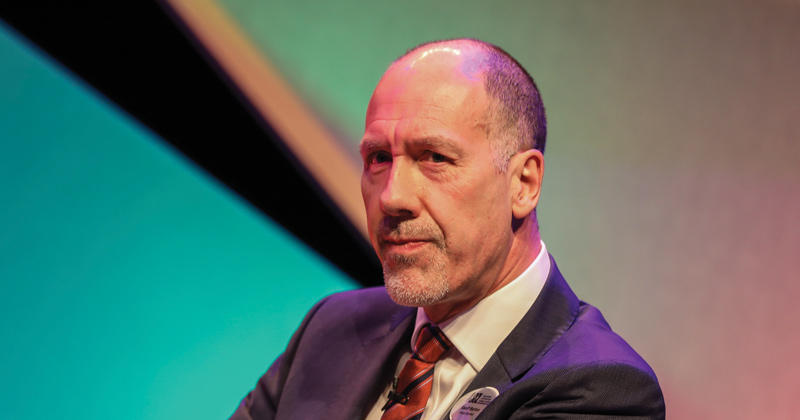The government’s proposals to reform teacher pay risk “short-changing” more experienced teachers and exacerbating retention problems, education unions have warned.
Leadership unions NAHT and ASCL, along with the National Education Union and Voice, have made a joint submission to the School Teachers’ Review Body, which makes recommendations to ministers on teacher pay.
We have to stop haemorrhaging experienced staff from the profession – not make matters worse
In its own submission to the STRB in January, the Department for Education proposed that teachers’ starting salaries should rise to £26,000 from September, a rise of up to 6.7 per cent for some, while experienced teachers and heads should receive a 2.5 per cent pay rise.
In their submission, the unions argued that the proposed rise for those more experienced teachers and leaders is not good enough.
“The government argues that a 3 per cent increase in the total pay bill is ‘appropriate’. Yet its proposals would generate a pay uplift of just 2.5 per cent for some two-thirds of classroom teachers and for all of those on the leadership pay range,” they stated in their letter.
“The government states that such an increase would be ‘above inflation’ – yet the latest Treasury average of forecasts has RPI at 2.5 per cent in the fourth quarter of 2020.”

The unions added that “not only would the overwhelming majority of classroom teachers get significantly lower pay increases than those on [main pay scale points 1 to 5], they would also see no significant restoration of the real-terms cuts to their pay since 2010.”
The government’s proposals for the next academic year represent the first phase of reform that will see the starting salaries for teachers rise to at least £30,000 by 2022-23. They will be even higher for teachers in London.
But the decision has prompted warnings that a focus on starting salaries in order to bolster recruitment will lead to retention problems, because the change will flatten pay scales for teachers already in the profession.
Many senior teachers and heads are still smarting from the government’s unprecedented decision in 2018 to ignore the recommendations of the STRB and award different pay rises to those in different pay brackets. That year, although those on the main and unqualified teacher pay ranges received a 3.5 per cent rise, upper pay range teachers received just 2 per cent, and leaders 1.5 per cent.
“At a time when there is clear evidence of significant and worsening retention problems amongst senior teachers, our organisations view any proposal for another differentiated pay increase as wholly wrong,” the unions wrote in their submission.
“To focus on recruitment problems and ignore retention problems is not a solution to the recruitment and retention problem – it would create new problems, due to the dismay felt by experienced teachers at another differentiated award.”
A DfE spokesperson said its proposals “would support an attractive career path for the whole profession”.
“We want to make teaching attractive to the most talented graduates by recognising the prestige that we as a society place on the profession.”
But Geoff Barton, ASCL’s general secretary, said teachers and school leaders “will regard it as a snub if they are given a pay award which fails to recognise their professionalism and commitment after years of pay erosion”.
NAHT leader Paul Whiteman agreed, calling for a “fully funded, profession-wide pay increase, coupled with a return to nationally recognised pay scales that will maintain pay differentials and retain experienced teachers in the profession”.








Why would the DfE care about retention if there was enough supply of fresh bodies to keep the whole thing going? What and how it is taught is pretty much predetermined, constant testing does the rest, so no point in worrying too much about who is recruited either. For just about anyone with an education can do it, they’ll be saying no doubt. Just focus on positive stories of “making a difference”, “changing lives”, in recruitment literature and you’re there. Oh and don’t forget to keep upping the starting salary a bit. Will help with recruitment.
The immediate existing crisis in secondary school teacher supply cannot be fixed by extra new recruits, who might be ready in 1-2 years’ time notwithstanding the new 2 year early careers framework and the high drop out rate within 5 years of qualifying.
The only way to avoid two years of catastrophic retention and the huge and long lasting impact that would have on standards in our schools is an immediate and fully funded 5% pay increase.
Unless this is done, the market will decide what happens to the numbers of secondary teachers and no number of new recruits could possibly plug the gap.
The Teacher Gap is about to become a chasm.